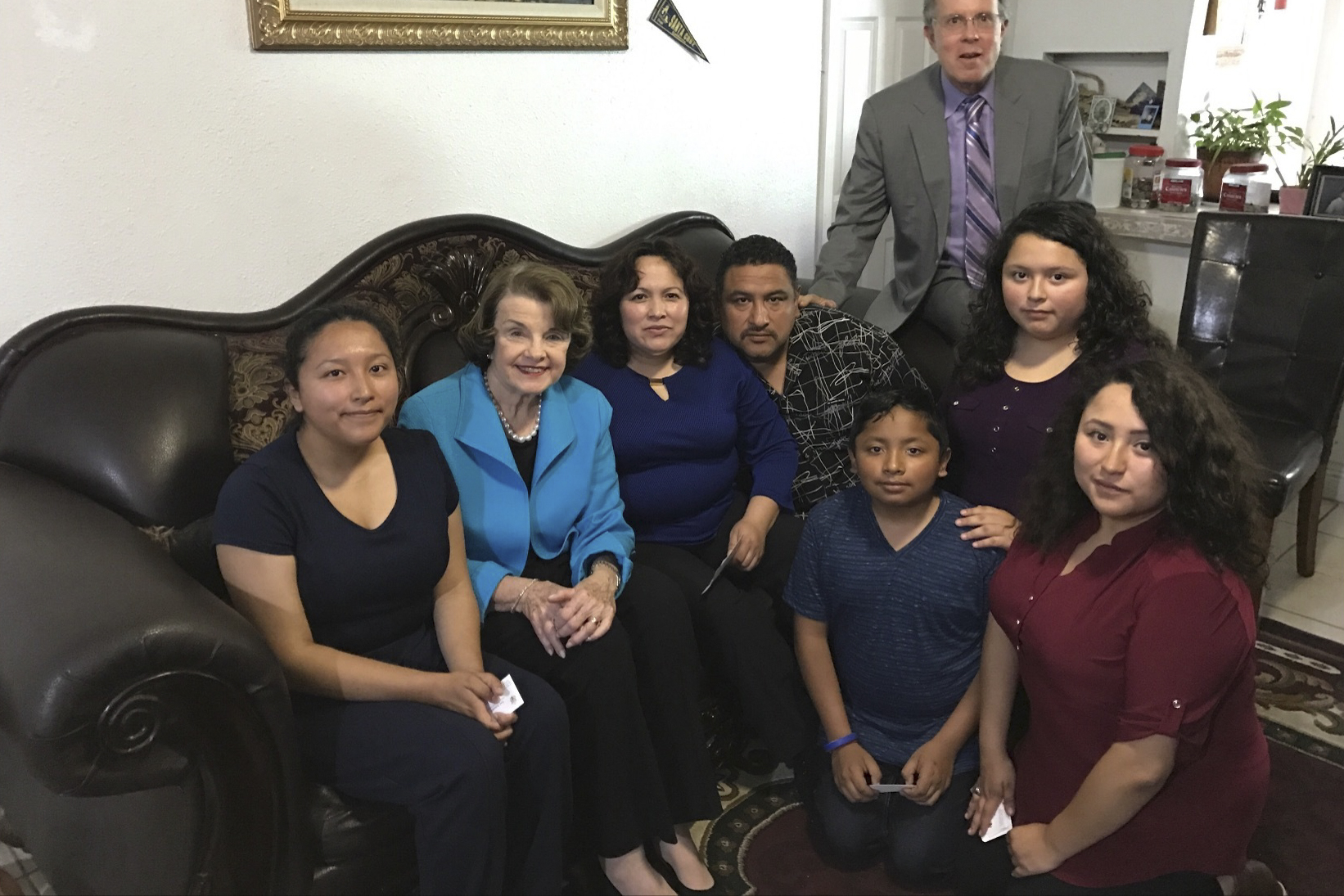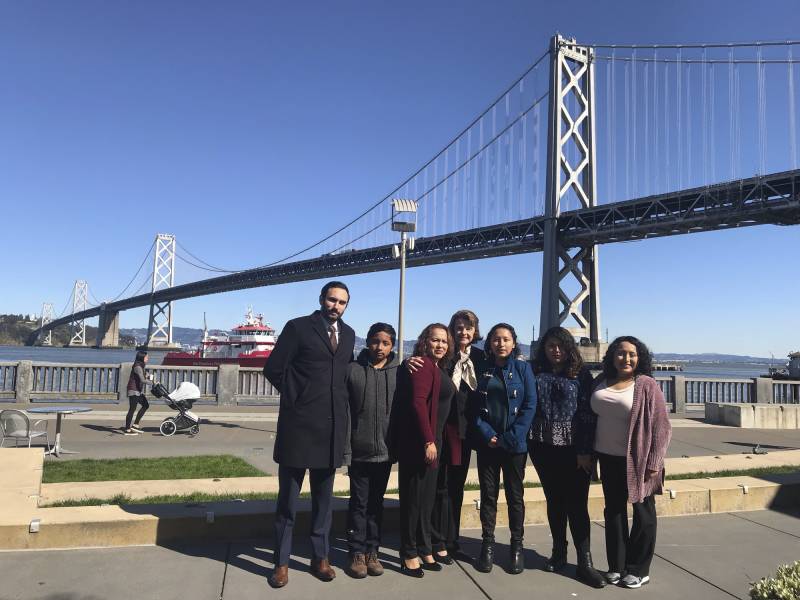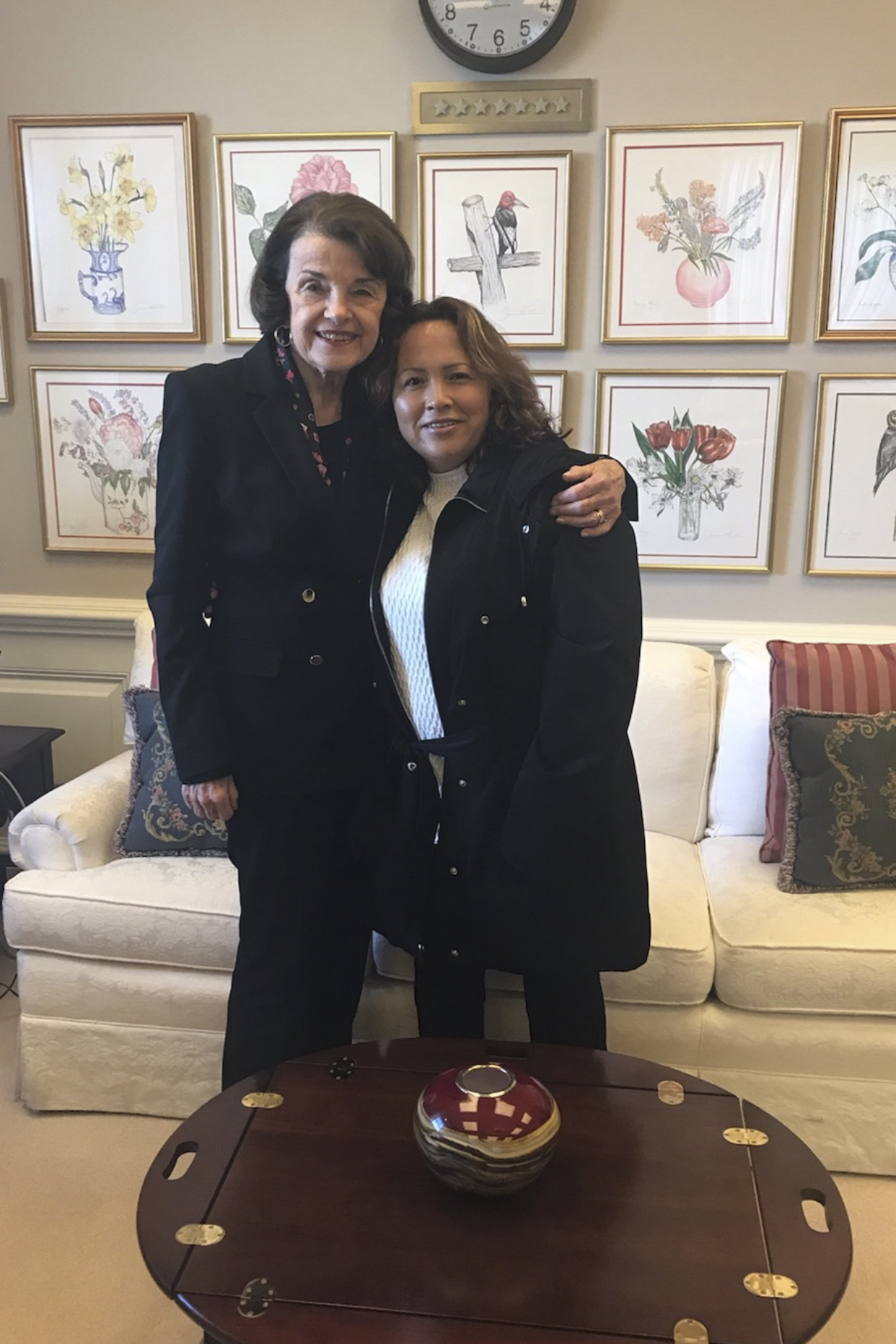As Sen. Dianne Feinstein is being eulogized for her long career in elected office, and her impact on gun control, water policy and other political issues, one Oakland family is remembering a more personal side of the late Senator.
In 2013, Highland Hospital oncology nurse María Mendoza reached out to Feinstein’s office for help when she and her husband Eusebio Sánchez, a truck driver, were at risk of deportation to Mexico. Feinstein advocated vigorously, even sponsoring a private bill, to keep the parents in the U.S. with their four children.
But the bill failed and, in August 2017, U.S. Immigration and Customs Enforcement warned the parents they would be deported.
Vianney Mendoza, now 29, remembers getting a call from the Senator’s staff the day before her parents were to board a plane. They were startled to hear that Feinstein was going to pay them a visit.
“We were confused because we didn’t know what they meant. And it turned out that the senator had her staff drive her from her office in San Francisco all the way to our little neighborhood in East Oakland,” said Vianney. “She came into our house, took my mother by the hand, and let her know, ‘I’m sorry that I couldn’t stop this. But your kids are going to be okay. I promise you that they’re going to be okay.’ And she hugged my mom. She hugged us.”

Vianney said she was struck that Feinstein was not there for media recognition or to make a public statement, but because these were her constituents.
“She made my family feel like we mattered,” she said. “She made us feel like we did belong here.”


